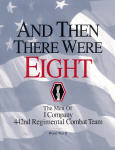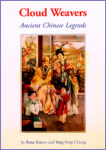|
A few weeks ago, a friend of mine made a disturbing comment about how he wished that Proposition 54 passes, just so our community can see how much it is affected by politics. The weight of his words resonated within me, helping me to see that if Proposition 54 passes, we would be playing a dangerous game of Russian roulette with the well-being of our communities at stake. If Proposition 54 passes, University researchers would not be allowed to conduct necessary work to help analyze the social problems that affect our Asian-American communities here in the Bay Area, the rest of California and even across the country. Proposition 54 will have profound effect on civil justice because it would be against the law to keep California state databases that record race-based hate crimes, which skyrocketed by 345.8% in California in 2001 after September 11th. Proposition 54 would make it illegal to record this information and make us blind to the injustices that are really going on.
In reading the initiative, one sees history repeating itself. Proposition 54 is the second racial initiative that Ward Connerly, a University of California Regent of African American, Native American, and European ancestry, has spearheaded. The first initiative was Proposition 209, which banned Affirmative Action in California. Formerly called the Racial Privacy Initiative, Proposition 54 passes off as a seemingly logical policy. Proponents of 54 claim that it will prevent the government from classifying people on the basis of race, because, as quoted from the American Civil Rights Institute, founded and chaired by Ward Connerly, "race has no place in American life or law." Proponents also claim that Californians are fed up with checking boxes for our ethnicity and instead, all would be considered "American." In an article for the Sacramento Bee, Connerly explains the sympathy he has for biracial families that have difficulty in having to chose which race their child is going to be and "how dehumanizing it is to ask people to check a box on what their race is."
The failure of this initiative to erase the color lines lies within the symbolic intent of the proposition, for it has no practical effect in actually eliminating the various forms of institutional discrimination. Instead, it would actually shroud discrimination within education, health care and law enforcement. The passing of Proposition 54 would not only represent our unwillingness to continue to tackle these problems but furthermore would make it impossible to prove these problems continue to exist. State Schools Superintendent Jack O'Connell spoke out against Proposition 54 to the State Senate Judiciary Committee, citing the fact that although the federal government already mandates the collection of information on racial subgroups in schools, California schools would not be allowed to use this information in making important public policy decisions. Among the uses of this collected information is to document the serious educational gaps amongst African American and Latino students, two groups that have historically scored low on achievement tests. Such information is also used to document the huge disparities in education between Asian American groups as well, especially among students who have recently immigrated to the United States.
Proposition 54 will also impede efforts in bringing social justice in law enforcement. Racial profiling is the illegal practice of using of race, religion, ethnicity, or national origin by law enforcement agents to determine who should be investigated, except where those unique characteristics are part of a specific suspect description. A recent lawsuit stemmed from the disproportionate numbers of African American and Latino motorists being stopped and searched by the California Highway Patrol. As part of the settlement ending this case the CHP was forced this past February to adopt reforms that prohibited the search of motorists without |
probable cause. Under Proposition 54, it would be impossible to determine if the CHP has actually carried out these reforms and stopped the practice of racial profiling since the collection of racial data about those stopped and searched would be prohibited.
In addition, the initiative's effect on providing equal access to health care would be tremendous, as evidenced by the many medical and health organizations, and health providers campaigning against Proposition 54 . As an undergraduate, I worked as a research assistant for a public health project aimed at using Asian grocery stores as sites to educate women about breast and cervical cancer. The study concluded that women within Asian American communities, particularly Vietnamese, have the lowest rates of exposure to preventive education about cancer, especially early screening which can prevent or halt the disease before it reaches a later and deadlier stage. This study relied heavily on information collected by surveys conducted within the community. The wording of Proposition 54 does not overtly state the legality of collecting this necessary information from surveys. How will we be able to serve our communities when it might be against the law to recognize these communities and collect social and health information about them?
Although the aim of achieving a colorblind society is definitely laudable, race plays a complex role in American life and law and no good can come out of abruptly sweeping our ability to monitor inequity under the rug. This initiative is largely symbolic and as many people point out, its implications will be battled in the courts if this is to pass. Proponents say that the exemption for health research is broad and are quick to say that if contested, they are prepared to go to the State Legislature to obtain an exemption if warranted. A large problem with this initiative is the fact that it is, in many respects, an experiment; one that California is not ready to undertake.
In the argument included in the voter information pamphlet for Proposition 54, proponents write, "the government should stop categorizing its citizens by color and ancestry, and create a society in which our children and grandchildren can just think of themselves as Americans and individuals." Yet many of our communities use the terms "Native American", "Asian American", "African American", and "Latino" in order to empower themselves and to connect their lives with their grandparents and parents and to recognize their history in the United States. Stories of inequality and discrimination, such as the internment of thousands of Japanese Americans during World War II and non-compensation for Filipino-American Veterans, do not record themselves and many individuals, community organizations and political leaders, including both leading Democratic and Republican gubernatorial candidates Cruz Bustamante and Arnold Schwarzenegger, oppose Proposition 54. As California voters, we should not have to wait for holes within this initiative to be filled and the ambiguities to be straightened out only after it passes.
Martin Luther King, Jr. spoke of his dream that people would be judged by the content of their character, not their skin color, but he also stated, "nothing in the world is more dangerous than sincere ignorance and conscientious stupidity." As we struggle to help make his dream our reality, we have a long way to go in achieving a colorblind society. Along this path, we cannot just close our eyes and hope that race and the dialogue about race will go away and therefore, we cannot take a chance on this misguided effort in remedying racism and discrimination. Prohibiting the collection of racial data necessary to understand inequality is sincere ignorance and conscientious stupidity.
|



